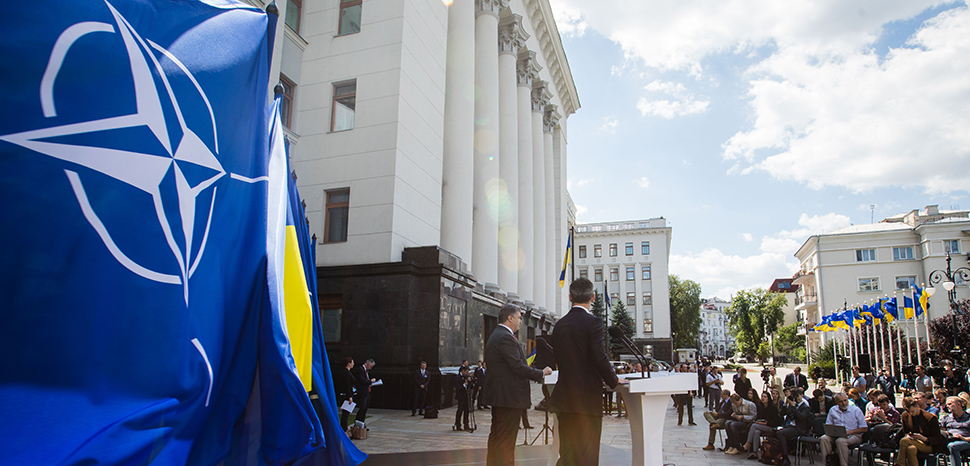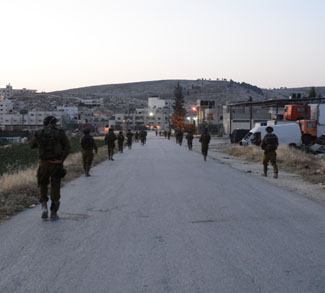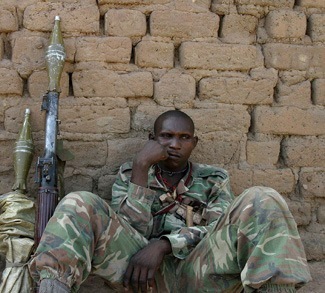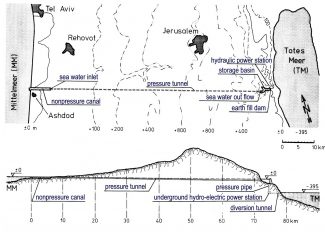As Washington, and in particular, the Republican Party, dithers on further aid to Ukraine at a pivotal moment, America’s allies in Central and Eastern Europe are watching with a lens to history and the role that the United States played in supporting their own NATO accession paths. In the 1990s, the push to enlarge NATO to the former Warsaw Pact states and Soviet republics of Estonia, Latvia, and Lithuania, was a geostrategic position led by leaders in their national capitals but vigorously supported by the US, albeit with some notable detractors. As the new millennium dawned a decade after the end of the Cold War, a new security architecture emerged in Europe, and by 2004, much of Central and Northern Europe was in NATO.
For current leaders like Polish Prime Minister Donald Tusk, the US’ prevarication on supporting Ukraine is personal, and especially disconcerting for him is to watch Republicans betray the principles outlined by Ronald Reagan, who Tusk believes would be ‘turning in his grave.’ As calls for European strategic autonomy increase and Washington’s commitment to NATO looks more tenuous, states from Poland to Estonia, Czechia, and Finland are all taking practical steps to enhance their defense capabilities. These states are increasing their ammunition stockpiles and forming regional security partnerships to break any bottlenecks in the defense supply chain as it pertains to Ukraine. They are also preparing for the next conflict in Europe and the potential return of Donald Trump, or another American president who will be more hesitant towards the alliance or refuse to come to their defense. However, all of these years after the end of the Cold War, there is still no substitute for Washington’s leadership and its role as the principal security guarantor in Europe.
Europe understandably became complacent after the collapse of the Soviet Union and the proclaimed ‘end of history’ that came with the unipolar moment of American hegemony. Poland, and the Baltic states, not to mention Western European states like France and the Netherlands, watched as documents like the Maastricht Treaty on the EU, and the Budapest Memorandum on Ukraine’s sovereignty and relinquishment of nuclear weapons were signed, in concert with bodies like the NATO-Russia Council being established. Vladimir Putin was not yet in the picture, but he would enter the scene just at the moment of Washington’s greatest vulnerability after the Sept 11 attacks, and in the subsequent years in which Washington’s moral authority was severely tested in Iraq and Afghanistan. Over 20 years later, Putin remains in power, looking confident and content with history, while using Western propagandists like Tucker Carlson to expound on his classic ‘whataboutism’ and slam the West’s moral vacuity as it pertains to Ukraine.
Two years on, the war in Ukraine is now at a stalemate, with Russia doing most of the advancing and the Ukrainian army rationing artillery shells as they engage primarily in defensive operations. EU foreign policy chief Josep Borrell has committed to giving Ukraine 1.15 million artillery shells by the end of 2024 but the bloc is expected to deliver only half of all promised artillery shells by their March deadline. Thus, Ukraine remains heavily reliant on the US and the whims of a small but vocal faction of the Republican Party that has relinquished any claims to the conservatism of Ronald Reagan in favor of cult-like fealty to former President Trump. In the midst of this battle, it is important for principled Republicans like Senate Minority Leader Mitch McConnell to continue visiting and advocating for Ukraine, showing President Zelenskyy that the values of Reagan have not entirely vanished from the party he once presided over.
Building on this sentiment, 17 Republicans joined with Senate Democrats to advance the Ukraine aid bill last week, a sign Zelenskyy will certainly welcome. As Ukraine has its own military shakeup, Poland and Slovakia have new leaders, and Hungary is now the last NATO member state to vote on Sweden’s NATO accession, there is a fragile peace amidst a tense operating environment in Central and Eastern Europe. The US will continue to look inwards this year, separated from its allies across the North Atlantic and under immense pressure to fix the crisis at the southern border. Polish PM Tusk may criticize the Republicans over Ukraine, but President Biden is unlikely to receive much praise at the NATO summit in Washington DC this summer where once again, a formal path for Ukraine’s NATO accession is unlikely to materialize. The UK’s NATO ambassador is already signaling to Kyiv that it should lower its expectations ahead of the summit in order to avoid the disappointment that occurred after the Vilnius summit last year.
For Ukraine, its eventual path to the formal structures of Europe and the West look all but certain, but the timeline does not. Two years into Russia’s full-scale invasion, it is likely to be the states that were most accommodating to Russia early on, like France and Germany, combined with the more hawkish Baltic and Central European states, who will be most reliable in extending military and financial support. This is a welcome move that will undoubtedly bring benefits to European defense and security. However, Washington remains the wild card. Its influence risks eroding further if by this summer it not only can’t provide a pathway for Ukraine’s NATO accession but ends up providing less military and financial support to Ukraine than its European allies. Should this occur, it will be a clear signal to Europe to prepare for either a Trump or a NATO-hesitant presidency that will be short on resources, mired in protracted political infighting, and unsure of what conflict theatre to focus on. Ukraine is no stranger to being at the mercy of the whims of foreign powers and lacking full autonomy over its own affairs even as it makes remarkable strides in determining the fate of its own future.
Presently, Russia is still resurgent, pockets of Europe are becoming more strategically autonomous, and the US remains the primary security guarantor in Europe. For Ukraine to become a fully autonomous member of the European political, security, and defense community, it will require a deeper level of moral and strategic clarity on the part of its allies. The conflict has shown that in 2024 the terms of the Soviet Union’s collapse are still being tested. It may have taken longer than Kyiv would have liked for many of its allies to realize this, but the point of convergence has arrived. Now all that is needed is the will to set aside any concerns of engaging in humiliating or escalatory behavior towards Moscow to ensure that Ukraine not only survives but thrives in a neighborhood that finally welcomes Kyiv as one of its own.
The views expressed in this article belong to the authors alone and do not necessarily reflect those of Geopoliticalmonitor.com.




